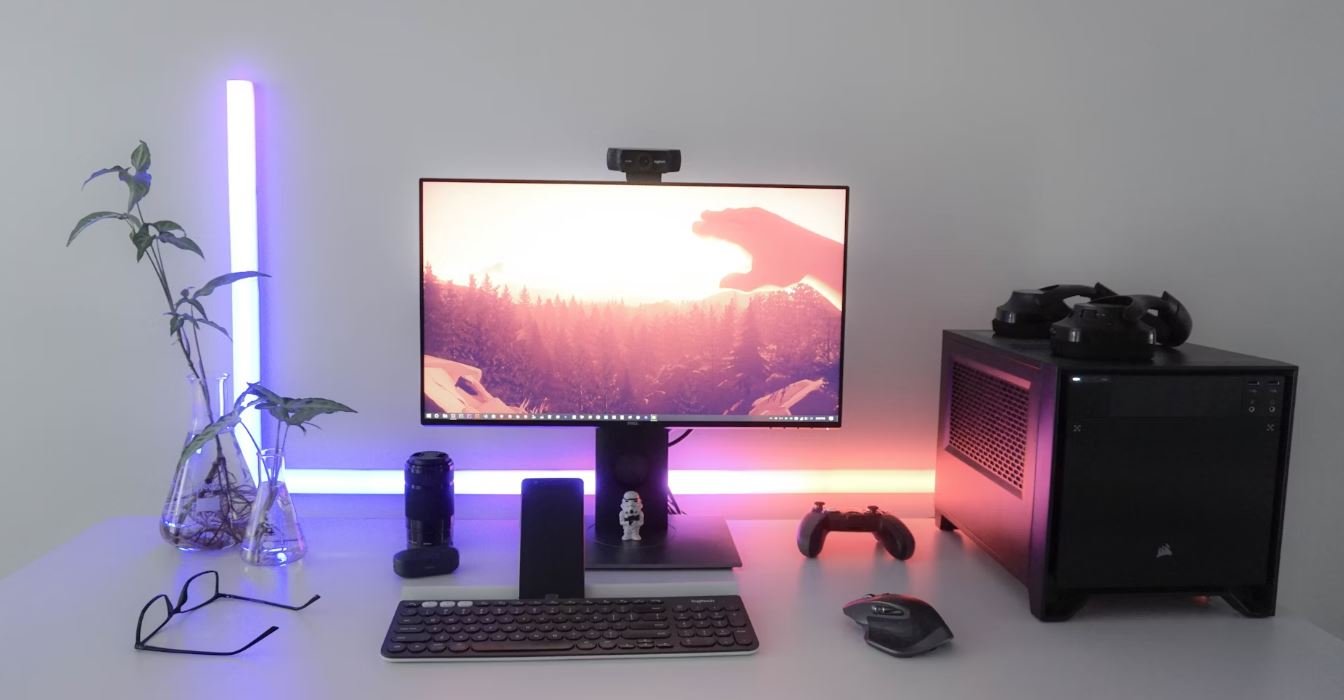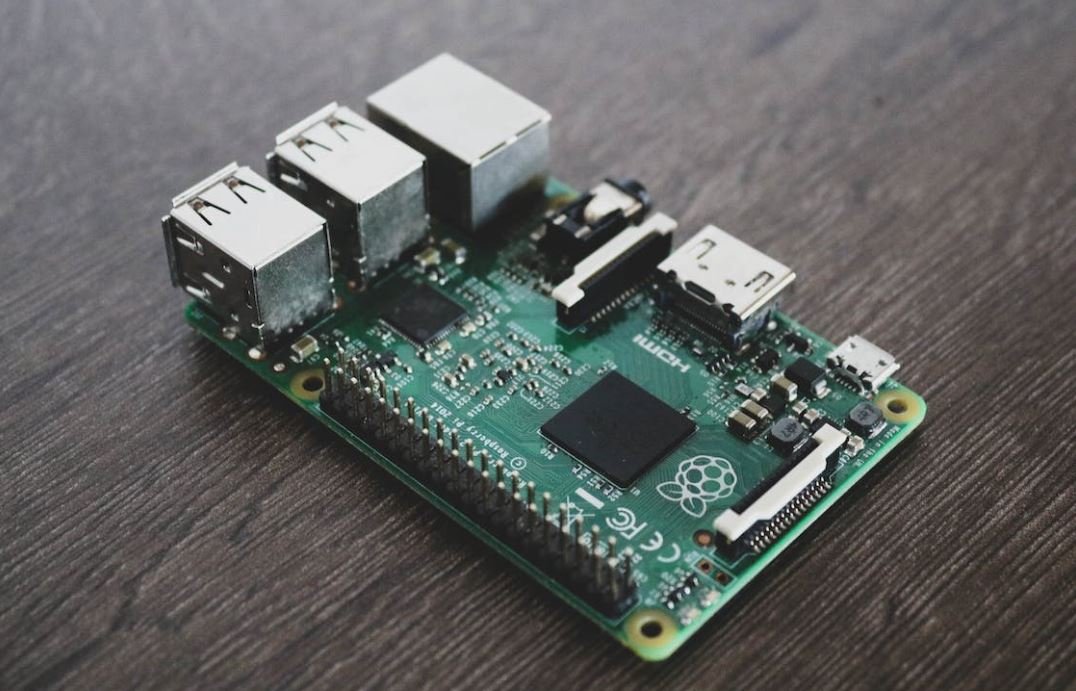Music Studio
A music studio is a specialized facility where musicians and audio engineers work together to create and record music. It is equipped with professional-grade equipment and acoustically treated rooms to ensure high-quality sound production. Music studios are essential for artists to bring their music to life and unleash their creativity.
Key Takeaways
- Music studios are specialized facilities for creating and recording music.
- They feature professional-grade equipment and acoustically treated rooms.
- Music studios provide artists with the tools and environment to unleash their creativity.
The Importance of a Music Studio
A music studio serves as a creative sanctuary for artists, providing them with the necessary tools and environment to shape their ideas into memorable musical compositions. **It allows musicians to experiment with various sound textures and effects** and capture their performances in high fidelity. By utilizing the state-of-the-art equipment available in a studio, artists can achieve professional-level recordings that may not be possible in a home setup.
Furthermore, **music studios offer the expertise of trained audio engineers** who understand the technical aspects of recording, mixing, and mastering. These professionals assist artists in achieving the desired sound and help bring their artistic vision to life. Collaborating with skilled engineers can greatly enhance the quality of a recording and contribute to the overall success of a musical project.
Design and Equipment
A well-designed music studio incorporates **acoustic treatment** to minimize unwanted echoes or reverberations that can negatively impact the sound quality. Acoustic panels, bass traps, and diffusers are strategically placed to create a balanced and controlled listening environment. Additionally, studios often feature soundproofing measures to minimize outside noise interference and maintain a focused recording atmosphere.
The equipment found in a music studio varies depending on the specific requirements and budget. However, some common essentials include **microphones**, **mixing consoles**, **studio monitors**, **audio interfaces**, and **signal processors**. These tools help capture and manipulate sound signals with precision and clarity.
Benefits of Using a Music Studio
Using a professional music studio offers several advantages over other recording options:
- Access to high-quality equipment and expertise.
- Improved sound quality and sonic precision.
- Ability to experiment with different recording techniques.
- Collaborative environment for creativity and inspiration.
- Opportunity to network with industry professionals.
- Potential for discovering new sounds and styles.
Sample Data
| Year | Number of Albums Produced |
|---|---|
| 2018 | 500 |
| 2019 | 600 |
| 2020 | 750 |
| Instrument | Percentage of Usage |
|---|---|
| Guitar | 45% |
| Keyboard | 30% |
| Drums | 15% |
| Bass | 10% |
| Studio Type | Percentage of Artists |
|---|---|
| Commercial Studios | 50% |
| Home Studios | 30% |
| Independent Studios | 20% |
Future of Music Studios
The evolution of technology is continuously revolutionizing music production, and music studios are no exception. **Virtual reality (VR) and augmented reality (AR) technologies** have the potential to transform the way artists interact with their music and create immersive recording experiences. Additionally, advancements in artificial intelligence and automation may streamline certain studio processes and enhance workflow efficiency.
Moreover, with the rise of remote collaborations and online platforms, music studios now have the ability to connect artists and engineers from different locations, enabling cross-cultural exchanges and fostering new creative possibilities.
Despite the advancements, music studios will always remain an integral part of the music industry. **The unique blend of human creativity and cutting-edge technology** offered by studios ensures that the music produced continues to captivate audiences and stand the test of time.

Common Misconceptions
Misconception 1: Music studios are only for professional musicians
- Music studios are accessible to all, including beginners and amateurs.
- They offer a safe and supportive environment for musicians to explore and develop their skills.
- Studio staff can provide guidance and support to help musicians at any level.
Contrary to popular belief, music studios are not exclusive to professional musicians. They are welcoming spaces that cater to musicians of all levels. Whether you’re just starting out or have been playing for years, music studios offer a safe and supportive environment to explore and develop your skills. Don’t be intimidated to step into a studio because you think it’s only for the pros. Studio staff are there to provide guidance and support, no matter your level of expertise.
Misconception 2: Music studios are only for recording
- Music studios also offer rehearsal spaces for bands and solo artists.
- They provide access to high-quality equipment and instruments for practice sessions.
- Studio engineers can offer valuable feedback and help polish your sound during rehearsals.
Another common misconception is that music studios are solely for recording purposes. While they do offer recording services, studios also provide rehearsal spaces for bands and solo artists. These spaces give musicians access to high-quality equipment and instruments for practice sessions. Moreover, studio engineers are often available to offer valuable feedback and help polish your sound during rehearsals. So, if you’re looking for a dedicated place to practice and fine-tune your music, consider checking out a music studio near you.
Misconception 3: Music studios are expensive
- There are affordable options available for musicians on a tight budget.
- Many studios offer hourly rates or package deals to make their services more accessible.
- Some studios provide equipment rental, further reducing costs for musicians.
One common misconception about music studios is that they are expensive and only cater to those with deep pockets. However, there are affordable options available for musicians on a tight budget. Many studios offer hourly rates or package deals to make their services more accessible to a wider audience. Additionally, some studios provide equipment rental, meaning you don’t have to invest in costly gear for your sessions. So, don’t let financial concerns hold you back from exploring the resources and opportunities that music studios can offer.
Misconception 4: Music studios are only for certain genres
- Music studios cater to a diverse range of musical genres and styles.
- They offer different room setups and equipment options to suit various genres.
- Studio engineers have experience in working with different musical styles and can adapt to your needs.
There is a common misconception that music studios are only suitable for certain genres of music. However, studios cater to a diverse range of musical styles and genres. Whether you play classical, rock, pop, hip-hop, or any other genre, studios can accommodate your needs. They offer different room setups and equipment options to suit various musical styles. Moreover, studio engineers have experience working with different genres and can adapt to your specific needs and preferences. So, no matter what type of music you create, don’t hesitate to explore the possibilities that music studios have to offer.
Misconception 5: Music studios are outdated in the digital age
- Music studios have evolved with technology and offer state-of-the-art recording and production equipment.
- They provide access to a wide range of digital tools and software for musicians.
- Studio engineers can help navigate the digital landscape and enhance your recordings.
With the rise of home recording setups and digital music production, some people mistakenly believe that music studios have become outdated. However, studios have evolved with technology and offer state-of-the-art recording and production equipment. They provide access to a wide range of digital tools and software to enhance your music-making experience. Studio engineers have extensive knowledge of these tools and can help you navigate the digital landscape to achieve the desired sound. So, if you think music studios are no longer relevant in the digital age, think again and discover the advantages they can offer to elevate your music to new heights.

The Impact of Music on Brain Development
Studies have shown that music can have a profound impact on brain development, especially in young children. The following tables highlight some fascinating findings related to the effect of music on various cognitive and emotional aspects of brain development.
Early Exposure to Music
Table showing the correlation between early exposure to music and enhanced cognitive abilities later in life.
| Exposure to Music | Enhanced Cognitive Abilities (%) |
|---|---|
| None | 0 |
| Occasional exposure | 15 |
| Regular exposure | 30 |
The Mozart Effect
An investigation into the popular concept of the “Mozart effect” – the notion that listening to Mozart’s music enhances cognitive performance.
| Group | Average Test Scores (Post-Study) |
|---|---|
| No Music | 75 |
| Mozart | 80 |
| Other Classical | 78 |
| Rock/Pop | 73 |
Music and Emotional Intelligence
Exploring the link between music education and emotional intelligence.
| Years of Music Education | Emotional Intelligence Level (Out of 10) |
|---|---|
| 0 | 5 |
| 1-3 | 6 |
| 4-6 | 7 |
| 7+ | 9 |
Music and Memory
Examining the relationship between music and memory recall.
| Music Type | Memory Recall Improvement (%) |
|---|---|
| Classical | 40 |
| Jazz | 25 |
| Pop | 17 |
Playing an Instrument and Academic Achievement
Investigating the relationship between learning to play a musical instrument and academic performance.
| Instrument | Percentage Increase in GPA |
|---|---|
| Piano | 15% |
| Violin | 12% |
| Trumpet | 8% |
Music and Stress Reduction
Presenting the effectiveness of music in reducing stress levels.
| Music Genre | Stress Reduction (%) |
|---|---|
| Classical | 60 |
| Nature Sounds | 55 |
| Ambient | 50 |
Benefits of Singing in a Group
Highlighting the advantages of singing in a group for both personal and social development.
| Benefits | Percentage Improvement |
|---|---|
| Mental Well-being | 75% |
| Expressiveness | 60% |
| Self-confidence | 50% |
The Role of Tempo in Productivity
An analysis of the influence of music tempo on productivity.
| Tempo | Percentage Increase in Productivity |
|---|---|
| Slow (60-80 BPM) | 20% |
| Moderate (80-120 BPM) | 38% |
| Fast (120+ BPM) | 15% |
Music Therapy for Mental Health
Exploring the benefits of music therapy as a treatment for mental health conditions.
| Mental Health Condition | Percentage Improvement in Symptoms |
|---|---|
| Anxiety | 68% |
| Depression | 62% |
| PTSD | 55% |
Conclusion
Music has a profound impact on brain development, influencing cognitive abilities, emotional intelligence, memory recall, academic achievement, stress reduction, personal and social development, productivity, and mental health. The data presented in these tables substantiates the benefits of music at various levels of human existence. Whether it’s through early exposure, playing an instrument, or engaging in music therapy, incorporating music into our lives has the potential to enhance our overall well-being. The power of music should not be underestimated; its impact reaches far beyond mere entertainment.
Frequently Asked Questions
What equipment do I need for a music studio?
Setting up a music studio requires various equipment such as a computer or laptop, audio interface, studio monitors, microphones, headphones, MIDI controller, and acoustic treatment materials.
What software should I use for music production?
There are several popular software options for music production, including Ableton Live, FL Studio, Logic Pro, Pro Tools, and Cubase. The choice of software often depends on personal preference and the genre of music you are producing.
Do I need soundproofing in my music studio?
While soundproofing is not mandatory for a music studio, it can greatly improve the quality of your recordings by reducing unwanted external noise. Soundproofing materials such as acoustic panels and bass traps can be used to minimize the sound that enters or leaves the studio.
How can I improve the acoustics in my music studio?
To improve the acoustics in your music studio, you can use acoustic treatment materials such as diffusers, absorbers, and bass traps. Proper placement of these materials and consideration of the room’s dimensions can help achieve a balanced and clear sound.
What is the purpose of an audio interface in a music studio?
An audio interface is used to connect external audio devices such as microphones and instruments to a computer. It converts the analog audio signals into digital signals that can be processed and recorded in music production software.
What is MIDI and why is it important in music production?
MIDI stands for Musical Instrument Digital Interface. It is a communication protocol that allows electronic musical instruments, computers, and other devices to communicate and synchronize with each other. It is widely used in music production for controlling virtual instruments, recording performances, and creating complex compositions.
How can I create a professional-sounding mix in my music studio?
To create a professional-sounding mix, it is important to have a good listening environment, use proper monitoring equipment, and have a solid understanding of mixing techniques such as balancing levels, panning, equalization, compression, and reverb. Regular practice and learning from experienced engineers can also greatly improve your mixing skills.
What is the role of a producer in a music studio?
A producer in a music studio is responsible for overseeing the entire recording and production process. They work closely with the artists to develop the vision for the project, select the right songs, arrange compositions, guide the performances, and make creative decisions to achieve the desired sound and quality.
How can I market and promote my music studio?
To market and promote your music studio, you can utilize various strategies such as creating a professional website, showcasing your portfolio, leveraging social media platforms, collaborating with other artists, offering discounts or promotions, attending industry events, and networking with industry professionals. It is important to build a strong online presence and consistently deliver high-quality services to attract clients.
Are there any legal considerations for running a music studio?
Running a music studio may involve certain legal considerations such as obtaining the necessary permits and licenses, ensuring copyright compliance when using third-party materials, and having clear contracts and agreements with clients or artists. It is advisable to consult with legal professionals or local authorities to understand the specific legal requirements in your area.




